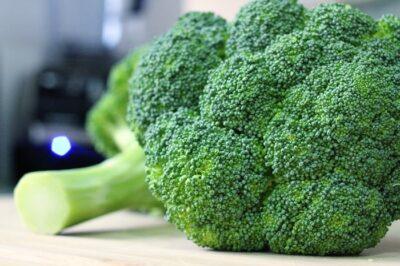The blog post 5 All-Natural Brain-Boosting Foods You Really Need Find more on: http://totalsurvival.net
brain boosting foods
“You are what you eat” can very well apply to brain power, too, according to the latest research. But how do specific foods boost our memory?
Let’s look into a few foods touted as memory boosters to understand exactly how they work:
1. Whole grains
Our brains are singularly greedy for glucose and insist on using only glucose for their function. Since brain tissue does not store energy within its cells, the brain needs to be supplied with glucose through the blood. And since it doesn’t really rest even when we are asleep, it is in constant need. And what better way to meet this requirement with a steady flow from the complex carbohydrates in the whole grains? Refined flours and sugars, on the other hand, cause highs and lows that are not exactly great for your brain health.
2. Berries
Berries are delicious and versatile brain boosters that you can have either cooked or raw in a variety of ways. Colorful berries are full of plant pigments such as anthocyanins. Consumption of food rich in these flavonoids is known to result in an increase of the antioxidative property of the blood. The brain, constantly at work, requires antioxidant protection.
New All-Natural Capsule Protects You From Dangerous Toxins And Pollutants!
According to a Harvard study, regularly consuming strawberries and blueberries delayed cognitive decline and memory loss by 2 ½ years in older women.
3. Vegetables

brain boosting foods
Beetroot’s blood pressure lowering effect is well known. But this vegetable, although not exactly flavorful, can be an excellent memory booster, too. When older people were given a daily drink of beet juice, blood flow to the brain increased, particularly in the brain area involved in age-related memory loss.
Are there other vegetables? Yes. Try Broccoli and kale.
The high choline and vitamin K content of broccoli make it a super brain food. Together with folic acid, it helps in brain development and enhancing cognitive function. Choline is especially involved in the retrieval of stored memories.
Kale, the leafy cousin of broccoli, is one step ahead as a memory booster. A storehouse of B-group vitamins, folic acid and vitamin K, it also has a significant amount of amino acid L-tyrosine that improves cognitive function and analytical thinking, besides enhancing memory. This easy-to-grow, cut-and-come back vegetable deserves to be a regular part of our diet, be it in smoothies, stir fries or salads.
4. Nuts and seeds
These oil-rich foods are concentrated forms of energy as well as nutrients that plants hand over to their successive generations. No wonder they are chock full of substances beneficial to us. The fats in nuts and seeds are high quality unsaturated fats that lower bad cholesterol and relieve inflammation in the brain. This ensures a healthy blood flow into the brain.
Walnuts are a great source of omega-3 fatty acids that have both structural and functional importance to the brain. They also are a good source of melatonin. This hormone produced by the pineal gland in the brain is responsible for regulating sleep, but its production decreases as we age, adversely affecting our sleep capacity as well as neurological health, probably the main reason for age-related memory loss and Alzheimer’s. Walnuts are rich in neuro-protective vitamins such as folate and vitamin E, too.
Without A Doubt The Best Kept Secret In Indoor Self-Reliance Gardening…
Almonds have been traditionally used as a brain booster in many cultures. In some male-dominated Asian societies, almonds were soaked overnight in water and then ground in the morning to make an enriching milk drink reserved for the sons in the family. Even today, children preparing for competitive exams are given this as a nutritional supplement with a specific function.
Snacking on pumpkin seeds can provide you with Zinc, a mineral known to enhance memory. Chick peas and cashews are good sources of this mineral, too. Lecithin from sunflower seeds improves the production of acetylcholine, a neurotransmitter that helps you access the memories stored in the brain.
5. Fish
Everybody knows fish is a great source of omega-3 fatty acids. It is particularly good for brain health because of two specific fatty acids called docosahexaenoic acid (DHA) and eicosapentaenoic acid (EPA), which are the primary structural fats of our brain tissue.
Many plant sources, including walnuts and flax seeds, provide omega-3 fatty acids such as alpha-linolenic acid (ALA), but our body has to convert it to EPA and DHA. Since that conversion is not very efficient, sourcing it directly may be a better option. The very fact that human breast milk is rich in DHA underscores the importance of this fatty acid in brain development.
You can source your regular dose of these brain nutrients from oily fish such as salmon, tuna, mackerel, sardines and herring. The smaller fish reduce the risk of toxic chemical build-up associated with larger oily fish. The cholesterol-lowering capacity of fish oil ensures good blood flow to the brain, too. Lower stroke risk in the Japanese and the Swedish people is attributed to a diet high in fish.
Do you have any memory-boosting food tips? Share them in the section below:
Get $600 Worth Of Survival Blueprints … Absolutely Free!
The post 5 All-Natural Brain-Boosting Foods You Really Need appeared first on Off The Grid News.
This Article Was Originally Posted On offthegridnews.com Read the Original Article hereSee More Here: 5 All-Natural Brain-Boosting Foods You Really Need

No comments:
Post a Comment